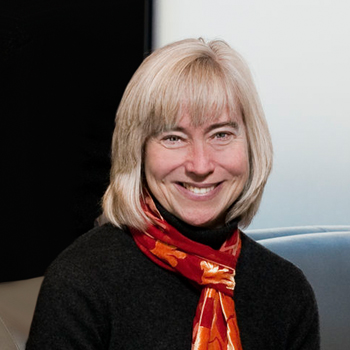Fake news. Cryptocurrency. Data theft. Xenophobia. Climate change.
At a key moment when the world strives to understand rapidly unfolding changes, increased attention is being paid to the crucial role of the humanities, with their focus on the history, technologies and aesthetics of human cultures.
Now, scholars in the humanities will have new opportunities to share publicly the wide-ranging impacts of their work thanks to a $770,000 grant from the Andrew W. Mellon Foundation to the Jackman Humanities Institute (JHI) at the Faculty of Arts & Science. The Mellon Foundation is a valued long-term partner to U of T, having already funded a number of projects such as the Dictionary of Old English and the development of innovative digital tools for manuscript study.
The JHI has already established a stellar record of promoting work in the arts and humanities and fostering connections between humanities projects, scholars and communities, including the launch of a Digital Humanities Network in 2016 and events like Shame and Prejudice: A Story of Resilience, an exhibition of new works by Indigenous contemporary artist Kent Monkman which drew more than 20,000 visitors to the Art Museum at the University of Toronto in 2017. The JHI has also collaborated with the Mellon Foundation for a multi-year international research project, “Aesthetic Education: A South-North Dialogue.”
The Mellon grant will significantly expand the JHI’s resources and bring new fellows and staff on board to diversify their already rich slate of programming. In particular, the JHI’s public humanities initiative, Humanities at Large, will foster knowledge exchange between the academy and the public while supporting new forms of communication and collaboration through six initiatives over three years:
- An annual creative non-fiction workshop will train scholars in reaching non-academic audiences through popular outlets like The Walrus and The New Yorker.
- Annual social media training sessions will help humanities scholars communicate to a wide variety of audiences while growing the reach of their research and public profile.
- Two annual community-engagement workshops will share best practices in knowledge transfer, community-engaged research, and taking specialized research outside of the academy.
- An outreach program will place graduate students and exceptional undergraduate students in high school classrooms to share their research in humanities subjects like English, foreign languages, history, social sciences, music and art.
- The Talking Books series will feature discussion events hosted by JHI faculty fellows based around a literary anniversary or best-selling author, with a particular focus on public appeal.
- The JHI’s humanities research will be profiled in radio and podcasts, increasing public awareness of and engagement in key issues across humanities disciplines.

In addition to these initiatives, the newly created Visiting Public Humanities Fellow and Early-Career Fellow in Community-Engaged Humanities Research will join the existing New Media and Humanities Journalism Fellow and Distinguished Visiting Indigenous Faculty Fellow. The JHI also plans to create new staff positions in order to bolster the Institute’s administration and communications initiatives.
Humanities at Large will “foster the transfer of knowledge and specialized research from a publicly-supported academy to the local, national and global communities that contribute to it in so many ways,” says Alison Keith, director of the JHI. “It will address the need for a better public understanding of the role, value, and unique contributions of the humanities in contemporary society.”
“We are deeply grateful for this major investment by the Mellon Foundation in world-leading humanities scholarship at the University of Toronto,” says U of T President Meric Gertler. “It will enable us to disseminate ideas through new platforms and technologies, and to share our research with non-traditional audiences. Ultimately it will strengthen our ability to facilitate thoughtful public conversations on a wide range of vital questions.”
The JHI’s current fellows include undergraduate students like Talise Beveridge, whose research in history and criminology investigates the FBI’s mid-20th century monitoring and suppression of domestic political organizations; graduate students like Deanna Del Vecchio, who is considering the role of photography in documenting border struggles such as the one along the US-Mexico line; faculty fellows like Professor Jennifer Nagel, whose research project explores the relationship between belief and knowledge, and asks how it is that we attribute these states to ourselves and others; and community partners like artist-in-residence David Rokeby, whose new media art practice explores human relationships with digital machines.

